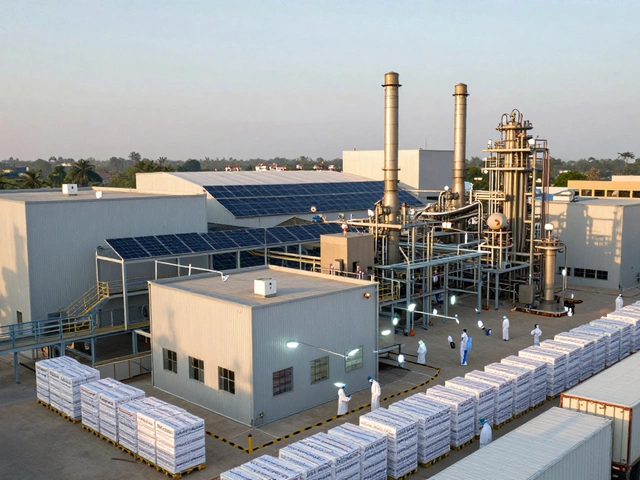Manufacturers: What They Do and Why It Matters
If you ever wonder where the tissues, rugs, or even your phone end up, the answer is simple – manufacturers. These are the companies that turn raw material into the products we use every day. Understanding the basics helps you make smarter buying choices, whether you’re a homeowner, a small business, or just curious about where things come from.
Key Types of Manufacturers
Manufacturers aren’t all the same. Some focus on heavy‑duty items like steel or electronics, while others specialize in softer goods such as home textiles or bathroom accessories. For example, a textile manufacturer in Surat might produce high‑quality fabric, whereas an electronics plant in China assembles smartphones. The size matters too – a large multinational may have factories on several continents, while a local workshop could serve a single city.
Another useful split is between original equipment manufacturers (OEMs) and contract manufacturers. OEMs design and build the product under their own brand. Contract manufacturers, on the other hand, produce items for other brands. Knowing which model you’re dealing with can affect quality control, lead times, and pricing.
Choosing the Right Manufacturer for Your Needs
First, figure out what matters most to you. Is it price, speed, quality, or sustainability? If you’re buying tissues made in India, you might prioritize eco‑friendly processes and local sourcing. Look for certifications like ISO or public sustainability reports – they give a quick snapshot of a factory’s standards.
Next, check the manufacturer’s track record. Customer reviews, case studies, and even news articles can reveal how they handle delays or product defects. A factory that consistently meets deadlines and maintains quality is worth the extra effort to verify.
Don’t forget to ask about scalability. If your demand grows, can the manufacturer ramp up production without losing quality? Asking for a sample run or a small pilot order can expose hidden issues before you commit to larger volumes.
Finally, communication is key. A manufacturer that responds quickly to emails, shares clear production timelines, and is transparent about costs will save you headaches later. Trust your gut – if the interaction feels clunky, you might face bigger problems down the line.
In short, manufacturers shape the products that fill our homes and offices. By grasping the different types, checking credentials, and asking the right questions, you can pick a maker that matches your priorities. Whether you’re hunting for plush towels, sturdy shelves, or the next tech gadget, a little research goes a long way toward better quality and smarter spending.
Chemicals India Imports: What You Need to Know
India's chemical import landscape is vast and varied, driven by dynamic industries such as pharmaceuticals and agriculture. The country imports chemicals like active pharmaceutical ingredients, petrochemicals, and specialty chemicals to support its booming manufacturing sector. Understanding the types of chemicals imported into India can offer insights into the country's industrial growth and economic strategies. Dive into this guide to explore the essential chemicals that fuel India's expanding industrial base.
View More




